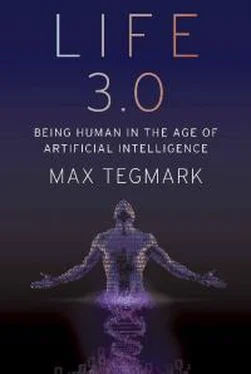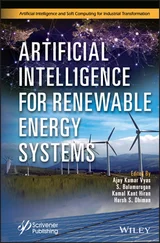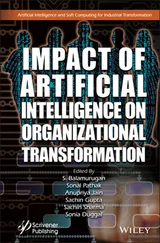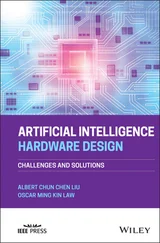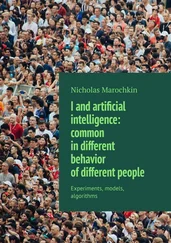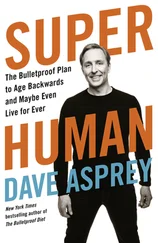Let’s start with the question of income: redistributing merely a small share of the growing economic pie should enable everyone to become better off. Many argue that we not only can but should do this. On the 2016 panel where Moshe Vardi spoke of a moral imperative to save lives with AI-powered technology, I argued that it’s also a moral imperative to advocate for its beneficial use, including sharing the wealth. Erik Brynjolfsson, also a panelist, said that “if with all this new wealth generation, we can’t even prevent half of all people from getting worse off, then shame on us!”
There are many different proposals for wealth-sharing, each with its supporters and detractors. The simplest is basic income, where every person receives a monthly payment with no preconditions or requirements whatsoever. A number of small-scale experiments are now being tried or planned, for example in Canada, Finland and the Netherlands. Advocates argue that basic income is more efficient than alternatives such as welfare payments to the needy, because it eliminates the administrative hassle of determining who qualifies. Need-based welfare payments have also been criticized for disincentivizing work, but this of course becomes irrelevant in a jobless future where nobody works.
Governments can help their citizens not only by giving them money, but also by providing them with free or subsidized services such as roads, bridges, parks, public transportation, childcare, education, healthcare, retirement homes and internet access; indeed, many governments already provide most of these services. As opposed to basic income, such government-funded services accomplish two separate goals: they reduce people’s cost of living and also provide jobs. Even in a future where machines can outperform humans at all jobs, governments could opt to pay people to work in childcare, eldercare, etc. rather than outsource the caregiving to robots.
Interestingly, technological progress can end up providing many valuable products and services for free even without government intervention. For example, people used to pay for encyclopedias, atlases, sending letters and making phone calls, but now anyone with an internet connection gets access to all these things at no cost—together with free videoconferencing, photo sharing, social media, online courses and countless other new services. Many other things that can be highly valuable to a person, say a lifesaving course of antibiotics, have become extremely cheap. So thanks to technology, even many poor people today have access to things that the world’s richest people lacked in the past. Some take this to mean that the income needed for a decent life is dropping.
If machines can one day produce all current goods and services at minimal cost, then there’s clearly enough wealth to make everyone better off. In other words, even relatively modest taxes could then allow governments to pay for basic income and free services. But the fact that wealth-sharing can happen obviously doesn’t mean that it will happen, and today there’s strong political disagreement about whether it even should happen. As we saw above, the current trend in the United States appears to be in the opposite direction, with some groups of people getting poorer decade after decade. Policy decisions about how to share society’s growing wealth will impact everybody, so the conversation about what sort of future economy to build should include everyone, not merely AI researchers, roboticists and economists.
Many debaters argue that reducing income inequality is a good idea not merely in an AI-dominated future, but also today. Although the main argument tends to be a moral one, there’s also evidence that greater equality makes democracy work better: when there’s a large well-educated middle class, the electorate is harder to manipulate, and it’s tougher for small numbers of people or companies to buy undue influence over the government. A better democracy can in turn enable a better-managed economy that’s less corrupt, more efficient and faster growing, ultimately benefiting essentially everyone.
Giving People Purpose Without Jobs
Jobs can provide people with more than just money. Voltaire wrote in 1759 that “work keeps at bay three great evils: boredom, vice and need.” Conversely, providing people with income isn’t enough to guarantee their well-being. Roman emperors provided both bread and circuses to keep their underlings content, and Jesus emphasized non-material needs in the Bible quote “Man shall not live by bread alone.” So precisely what valuable things do jobs contribute beyond money, and in what alternative ways can a jobless society provide them?
The answers to these questions are obviously complicated, since some people hate their jobs and others love them. Moreover, many children, students and homemakers thrive without jobs, while history teems with stories of spoiled heirs and princes who succumbed to ennui and depression. A 2012 meta-analysis showed that unemployment tends to have negative long-term effects on well-being, while retirement was a mixed bag with both positive and negative aspects.56 The growing field of positive psychology has identified a number of factors that boost people’s sense of well-being and purpose, and found that some (but not all!) jobs can provide many of them, for example:57
• a social network of friends and colleagues
• a healthy and virtuous lifestyle
• respect, self-esteem, self-efficacy and a pleasurable sense of “flow” stemming from doing something one is good at
• a sense of being needed and making a difference
• a sense of meaning from being part of and serving something larger than oneself
This gives reason for optimism, since all of these things can be provided also outside of the workplace, for example through sports, hobbies and learning, and with families, friends, teams, clubs, community groups, schools, religious and humanist organizations, political movements and other institutions. To create a low-employment society that flourishes rather than degenerates into self-destructive behavior, we therefore need to understand how to help such well-being-inducing activities thrive. The quest for such an understanding needs to involve not only scientists and economists, but also psychologists, sociologists and educators. If serious efforts are put into creating well-being for all, funded by part of the wealth that future AI generates, then society should be able to flourish like never before. At a minimum, it should be possible to make everyone as happy as if they had their personal dream job, but once one breaks free of the constraint that everyone’s activities must generate income, the sky’s the limit.
Human-Level Intelligence?
We’ve explored in this chapter how AI has the potential to greatly improve our lives in the near term, as long as we plan ahead and avoid various pitfalls. But what about the longer term? Will AI progress eventually stagnate due to insurmountable obstacles, or will AI researchers ultimately succeed in their original goal of building human-level artificial general intelligence? We saw in the previous chapter how the laws of physics allow suitable clumps of matter to remember, compute and learn, and how they don’t prohibit such clumps from one day doing so with greater intelligence than the matter clumps in our heads. If/when we humans will succeed in building such superhuman AGI is much less clear. We saw in the first chapter that we simply don’t know yet, since the world’s leading AI experts are divided, most of them making estimates ranging from decades to centuries and some even guessing never. Forecasting is tough because, when you’re exploring uncharted territory, you don’t know how many mountains separate you from your destination. Typically you see only the closest one, and need to climb it before you can discover your next obstacle.
Читать дальше
